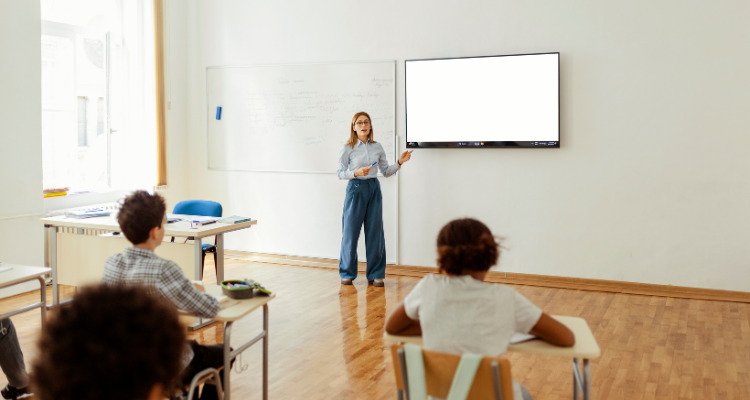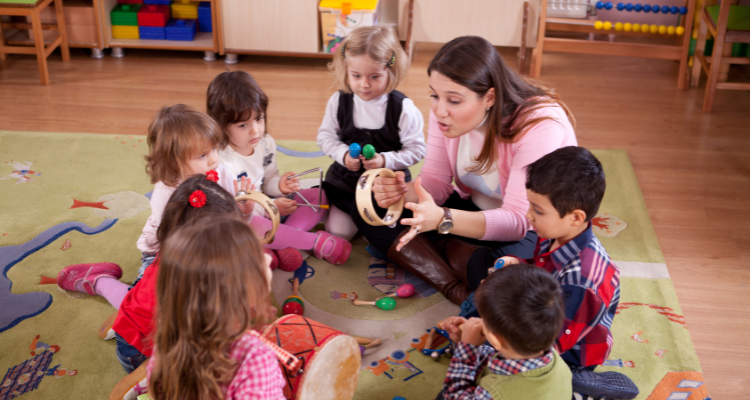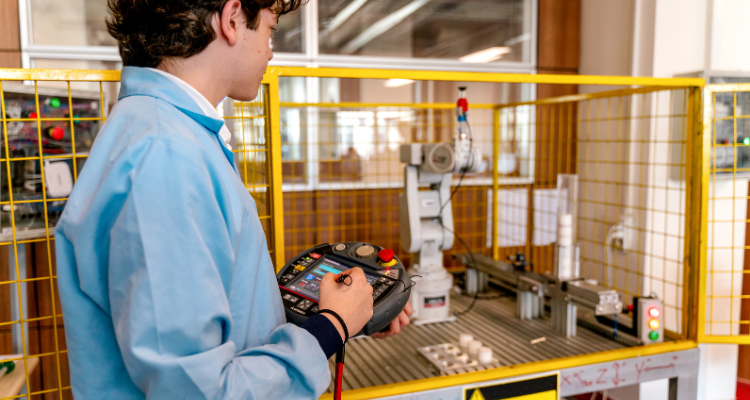EUROPEAN SOCIAL PARTNERS IN EDUCATION PROMOTING ENVIRONMENTAL SUSTAINABILITY IN SCHOOL LEARNING, TEACHING AND MANAGEMENT

The ‘European Social Partners in Education Promoting Environmental Sustainability in School Learning, Teaching and Management’ is an ongoing two-year initiative led by EFEE and our partners at ETUCE. The scope of the project is to explore teacher education and school management’s role in creating eco-friendly learning environments.
This, in turn, should support the implementation of the EU’s green working agenda in European countries by fostering the development of sustainable societies as a continuous learning process from an early stage. Throughout the course of the project, case study visits have taken place in Ireland, Finland, Poland, and Spain – allowing EFEE and ETUCE to delve into best practices related to this subject and fostering a rich dialogue between education employers and trade union representatives. In this process, we have also conducted a comprehensive survey aimed at filling knowledge gaps on EU-level environmentally friendly learning – presented in the project’s Final Conference along with Joint Recommendations from the social partners (available below).

EFFECTIVE SCHOOL MANAGEMENT IN THE TWIN TRANSITION - EVOLUTION OF TEACHERS' WORKING TIME DUE TO THE GREEN AND DIGITAL TRANSITIONS - EDUCATION EMPLOYERS CAPACITY BUILDING PROJECT

The EFEE ‘Effective School Management in Twin Transition’ project aims to address the evolving challenges in teachers’ working hours resulting from the green and digital transitions in the education sector. The project focuses on collecting best practices across EU member states to enhance the efficient and fair management of teachers’ working time.
Employing a comprehensive approach, the project examines the impact of these transitions on teachers’ workload and identifies best practices across EU member states to optimize the organization of their working time. By addressing the key issues of social dialogue, capacity building, and innovation in education, the project contributes to the broader European goals outlined in the European Green Deal and the European Pillar of Social Rights Action plan. The expected outcomes include a better understanding of teacher working time evolution; data collection on working time systems; and a stronger employer voice in social dialogue deliberations.

INNOVATION4EDUCATION: STRENGTHENING THE CAPACITY OF EUROPEAN EDUCATION EMPLOYERS THROUGH THE PROMOTION OF INNOVATION IN EDUCATION INSTITUTIONS IN A POST-COVID-19 ERA

The Innovation4Education project aims to enhance the capabilities of European education employers in a post-COVID-19 era by promoting innovation in educational institutions. In this context, it seeks to identify the management and leadership competences that are necessary to create and support innovative and resourceful spaces. We have already experienced how quickly everything can change; therefore, it is important that education employers prepare their institutions and employees to respond to future crises and challenges.
Focused on the principles of the European Pillar of Social Rights, the Innovation4Education project seeks to advance social dialogue and capacity building while fostering innovation in education to address the evolving needs of the sector. Innovation4Education is designed to empower European education employers to adapt to the challenges posed by the post-COVID-19 landscape. The project includes case study visits to Norway, Portugal, Belgium, and Slovenia – allowing EFEE and its membership to develop a truly European perspective on the subject. Taking place over the course of two years, the project includes advisory group meetings, Peer Learning Activities (PLA), and a final conference.

SCHOOLS AS LEARNING INSTITUTIONS – EUROPEAN SOCIAL PARTNERS IN EDUCATION PROMOTING EFFECTIVE QUALITY AND INNOVATION MANAGEMENT MODELS IN THE EDUCATION SECTOR IN A POST COVID-19 ERA

The EFEE-ETUCE ‘LearningSchools’ project focuses on promoting effective quality and innovation management models in the European education sector. Over 24 months, the project aims to investigate how innovation in the school environment is managed, including the extent to which social partners and other stakeholders are involved in the management and decision-making process and the way the implementation, progress and positive outcomes are monitored, and by whom.
More specifically, the project also seeks to foster dialogue and exchanges on successful and effective innovative practices, tools and processes in the post-Covid-19 era between education stakeholders throughout the activities of the project; to promote cooperation among education stakeholders, education employers, teachers, trade union representatives on the matter of designing and monitoring innovative practices in education institutions involving all relevant actors; and to contribute to raising the attractiveness of the teaching profession, awareness about the importance of quality and inclusive training, as well as capacity building by involving stakeholders in peer learning visits. Through case studies, research reports, and a final conference, the project also seeks to involve social partners in education, employers, and trade union representatives – contributing to the European Pillar of Social Rights and the priorities of the European Sectoral Social Dialogue Committee in Education as a result.

ADVANCING THE ATTRACTIVENESS OF THE TEACHING PROFESSION - SUPPORTING TEACHER INDUCTION PROGRAMS BEYOND THE COVID-19 PANDEMIC

EFEE’s ‘TeacherEd’ project is a research-oriented initiative that delves into the details of teacher induction programmes – analysing best practices and addressing post-COVID-19 challenges with a view to establishing a supportive environment for teachers entering into the profession, enhancing the appeal of teaching and offering recommendations for institutions, school management, and novice teachers in the process.
Within its scope the members of the consortium, with the collaboration of a hired external expert researcher, will search for the best model of teacher induction across EU countries; develop a working model of teacher induction into the profession on the basis of the aggregated data to be mainstreamed; prepare guidelines for education stakeholders including the ministries of education, local government representatives, school boards, school leaders and teacher education providers on what are the requirements to establish the best model of a supportive environment for young teachers entering the profession; and develop policy recommendations for education stakeholders to promote the main elements of the teacher induction model developed in this project.

TEACHER ACQUISITION – SUPPORTING EXPERIENCED PROFESSIONALS IN ACCESSING THE TEACHING PROFESSION IN VOCATIONAL EDUCATION AND TRAINING

This two-year transnational project is dedicated to enhancing teacher acquisition in vocational education and training (VET) across Europe. With a focus on hybrid teaching and second-career teaching, it aims to address teacher shortages, elevate teaching quality, and foster industry-education collaboration – with the ultimate view of establishing a supportive environment for craftsmen willing to transition to the teaching profession.
Through research efforts, peer learning activities, curriculum development, and the drafting of practical guideline and policy recommendations, the project seeks to identify and share innovative practices while simultaneously navigating complex legal frameworks. Partnering with entities like GO! onderwijs, MBO Raad, ETBI, CECE, ANESPO, Lithuanian VSA, and the Association of Secondary Schools Slovenia, we aim to ensure a comprehensive understanding of diverse practices and perspectives.

